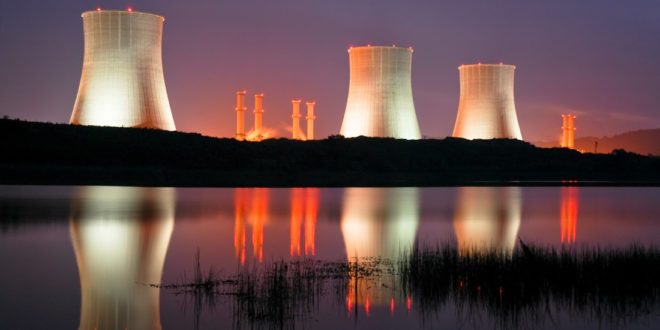East Africa's Nuclear Ambitions: Opportunities, Risks, and the Shadow of Dependence
Dr. Ahmed Sultan, Researcher Specializing in Oil and Energy Affairs
2/12/20253 min read


East Africa stands at a critical juncture in its energy future. With booming populations and rapidly growing economies, the demand for electricity is surging. In 2023, Uganda, Rwanda, Kenya, and Tanzania all signaled their intent to pursue nuclear power plants, driven by the need to drastically increase national electricity generation capacity. While nuclearenergy promises a stable, low-carbon source of power, this path is fraught with risks and challenges that warrant careful consideration.
Allure of Atomic Energy
East Africa's growth is undeniable. Between 2013 and 2017, the region's average growth rate doubled the African average. This, coupled with a significant increase in Sub-Saharan Africa's GDP, necessitates a reliable and substantial power supply. Nuclear reactors, with their ability to generate continuous electricity regardless of weather conditions, offer an appealing solution. Historically, nuclear energy has also carried a certain prestige, a symbol of technological advancement.
Why Nuclear Now?
For African nations where access to electricity remains limited – less than 40% of the population, according to the World Bank – diversifying energy sources is paramount. While hydroelectric power and coal have been traditional mainstays, the limitations of these resources are becoming increasingly apparent. Hydroelectric power is vulnerable to droughts, and coal carries significant environmental consequences.
Solar energy, while promising, remains a small part of the energy mix. Nuclear energy, therefore, emerges as a potentially attractive alternative. Experts like Claire Kerbol, author of "Emergencies for Sustainable Nuclear Energy," suggest exploring Small Modular Reactors (SMRs) to replace fossil fuel plants, offering standardization, compact size, and integrated fuel management. Kerbol also advocates for Fast Neutron Reactor (FNR) technology to maximize uranium resource utilization and minimize waste.
Risks and Challenges
Despite the potential benefits, East Africa's nuclear ambitions face significant hurdles:
Financial Capacity: Building a nuclear power plant can cost upwards of $5 billion per gigawatt – exceeding the GDP of many African nations. Securing such massive investment amid a global economic crisis, compounded by existing debt burdens, presents a formidable challenge.
Technical Expertise and Infrastructure: Operating and maintaining nuclear plants requires specialized knowledge and infrastructure currently lacking in most African countries. Relying on external expertise necessitates significant training and development programs.
Fragility, Instability, and Security: The political and security landscape of many African nations poses a risk to nuclear projects. Concerns about plants falling into the hands of non-state actors and potential for sabotage cannot be ignored.
Political and Economic Dependence: Entering the "nuclear club" can lead to political and economic dependence on the technology-exporting country, potentially hindering true autonomy.
Russia's Expanding Influence
Russia, through Rosatom, has emerged as a dominant player in Africa's nuclear sector. By 2019, Russia had signed nuclear cooperation agreements with 18 African countries, offering attractive financing options: low-interest loans with delayed repayment schedules. However, this creates a long-term dependence on Russia for a critical resource, a dependence that is further complicated by the ongoing war in Ukraine and the potential for instability within the Russian state.
Rosatom's dominance in the global nuclear market is undeniable. The company controls a significant share of nuclear power projects worldwide, even owning European firms.
To overcome the challenges hindering Africa's nuclear projects, Russia provides long-term loans with low-interest rates and deferred repayment schedules. Additionally, Russia offers support in developing technical expertise and infrastructure. Russia has developed its military and security apparatus in Africa to address issues related to the fragility, instability, and security of nuclear projects. Furthermore, in an effort to avoid political and economic dominance, Russia has made a point of refraining from meddling in internal political affairs and has offered generous economic packages devoid of the West's exploitative colonial logic, allaying concerns about dominance and control.
A Shift in the West's Reluctance
While Africa possesses abundant renewable energy resources, nuclear power presents the most efficient solution to the continent's energy crisis. However, Western powers, who dominate the nuclear energy industry, have long been hesitant to localize nuclear energy in Africa, particularly in the absence of Russia, their primary rival.
However, with the rise of competition from Russia, as well as other competitors such as China and South Korea, Western nations have been compelled to respond. They have eased their reservations regarding the localization of nuclear energy in Africa and have entered the fray by providing more enticing terms. For example, French company "EDF," American company "NuScale Power and Regnum Technologies," Chinese National Nuclear Corporation, South Korean "KEPCO," and Russian "Rosatom" are all vying to secure the contract for building the first nuclear power plant in Ghana.
Road Ahead: Diversified Energy Mix
Given the risks, costs, and long timelines associated with nuclear projects, East African countries must carefully consider alternative energy sources. Solar, wind, and medium-sized geothermal power plants offer cheaper and faster alternatives. Hydropower remains important, but large dam projects are often controversial and time-consuming.
Solar power, though currently underutilized, holds immense potential, and wind farms are being considered in specific locations. The Great Rift Valley offers significant opportunities for geothermal energy development.
In conclusion, investing in large, expensive nuclear construction projects with uncertain timelines may not be the most prudent path forward for East Africa. A diversified energy mix, prioritizing renewable sources and carefully considering the risks and benefits of nuclear power, is crucial for a sustainable and secure energy future.
Download the full report here.
Empowerment
Amplifying African voices for sustainable progress together.
Contact US
Growth
Street No. 3281, N'Djamena, Republic of Chad.
© 2024. All rights reserved.